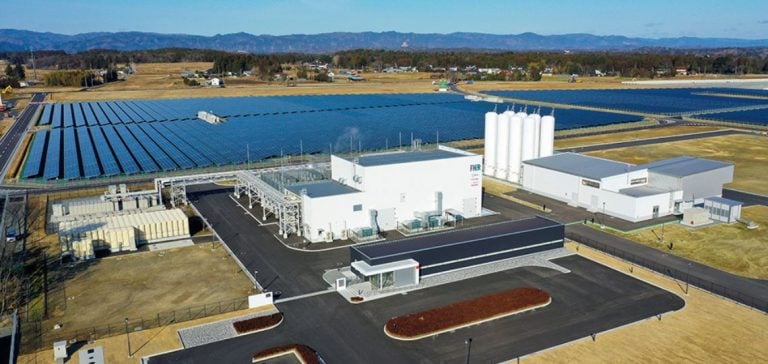Grimes Carbon Tech (GCT), a specialist in energy technologies, is developing a process that significantly reduces the cost of producing green hydrogen.
Its technology, called Caustic Aqueous-Phase Electrochemical Reforming (CAPER), is based on the use of abundant raw materials and low-temperature waste heat, generating green electricity from hydrogen, while capturing and reusing the carbon produced.
This model lowers hydrogen production costs by 80% compared with conventional electrolysis methods, without the support of public subsidies or tax credits.
What sets this approach apart is its ability to recycle the captured carbon to produce derivative fuels that can be sold on the market, thus contributing to the profitability of the process.
By eliminating dependence on external financing, GCT offers a competitive solution to fossil fuels, which are often considered more affordable.
Technology tailored to industrial needs
CAPER addresses the major challenges faced by energy-intensive industries.
These sectors, such as chemicals and metallurgy, are facing increasing demands in terms of decarbonization.
By providing a solution capable of producing hydrogen at low cost, GCT enables these industries to reduce their dependence on fossil fuels and comply with environmental regulations, while limiting the financial impact.
The process developed by GCT also incorporates a Carbon Capture and Reuse (CCR) system, which captures CO2 emissions and converts them into marketable fuels.
This ability to generate by-products increases interest in the technology as industries seek to maximize the value of each resource exploited.
Competitive costs without subsidies
Unlike other green hydrogen technologies that require financial support to be economically viable, GCT offers a stand-alone financing solution.
This business model represents a significant change for companies looking to invest in cleaner energy technologies.
Ultimately, this independence from subsidies could play a crucial role in companies’ energy transition.
This approach could also be of interest to companies and countries with limited energy infrastructure.
CAPER does not require connection to a centralized power grid, opening the way to applications in remote or developing regions.
This installation flexibility, combined with low production costs, makes GCT technology a credible alternative to traditional energy systems.
Development prospects and investments
GCT is positioning itself as an innovative player in the green hydrogen market, but to realize its ambition to deploy this technology on a large scale, the company is exploring financing options.
At this stage, GCT is offering investment opportunities, particularly to large energy companies looking to diversify their portfolios with decarbonization solutions.
The deployment of this technology could transform the global energy sector by offering an economically viable solution for the production of hydrogen at lower cost.
GCT’s prospects rest largely on the company’s ability to develop this technology beyond the pilot phases, to large-scale commercial production.
A fast-changing market
The fast-growing hydrogen market is attracting more and more industrial players looking for solutions to meet their decarbonization targets.
Traditional methods, such as electrolysis, are often perceived as too costly and unprofitable on a large scale.
GCT’s innovation offers a competitive alternative.
As demand for green hydrogen grows, affordability remains a key issue.
The arrival of a technology like CAPER could well reshuffle the deck and accelerate the adoption of hydrogen as the main energy source in many industrial sectors.






















